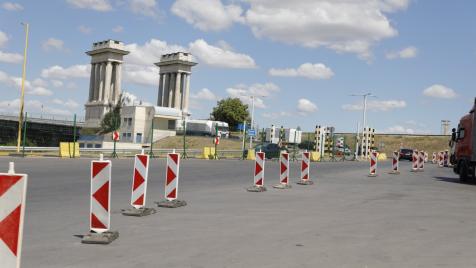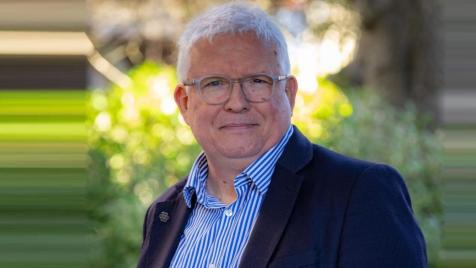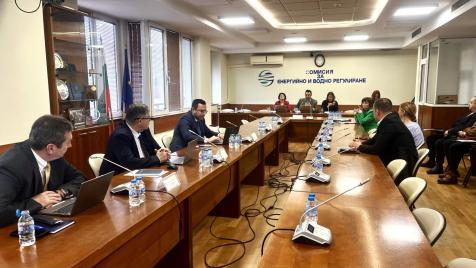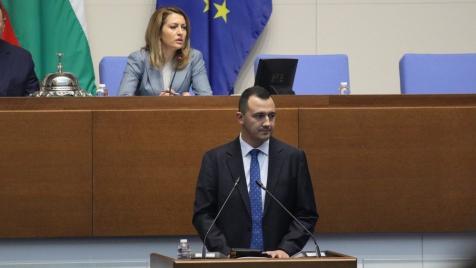Interview | Bulgaria could be a “gateway” for Korean business to the Balkans
Korean financial institutions are showing growing interest in strategic energy projects in Bulgaria
H.E. Dong-be Kim, Ambassador of the Republic of Korea to Bulgaria:
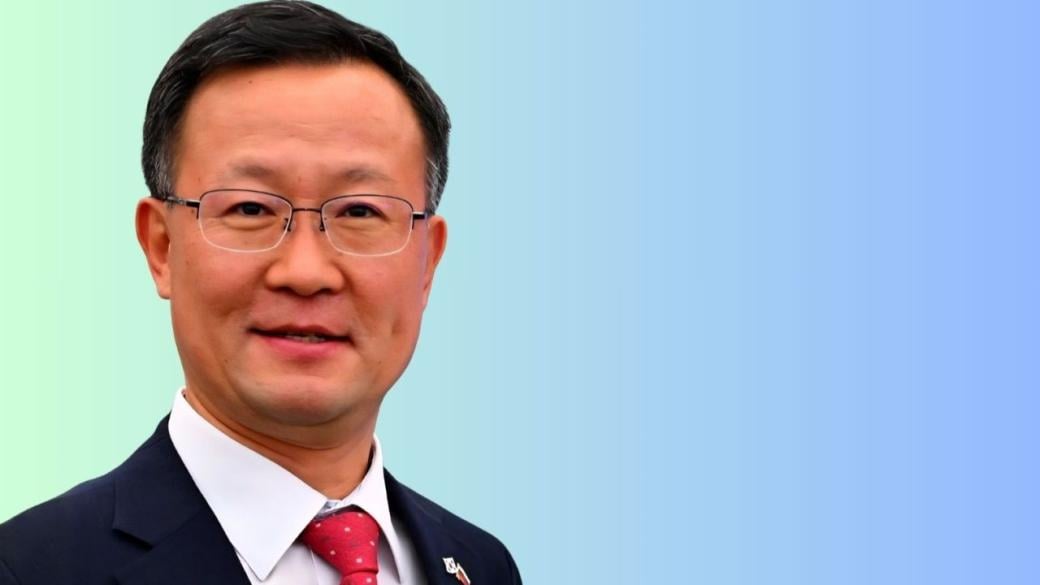
© ECONOMIC.BG / Embassy of the Republic of Korea
His Excellency Dong-bae Kim is a distinguished career diplomat with extensive experience in international relations, trade and investment, and multilateral cooperation. He joined the Ministry of Foreign Affairs of the Republic of Korea in 1997 and has since held a variety of key positions both at the headquarters and abroad. Over the course of his career, Ambassador Kim has served in several Korean embassies and missions, including postings in Europe, Asia, Oceania and Africa, where he focused on political affairs, economic diplomacy, and development cooperation.
Before his appointment as Ambassador to Bulgaria in early February 2025, he served long as Deputy Director-General and Director-General for ASEAN and Southeast Asian Affairs at the Ministry of Foreign Affairs in Seoul, where he played a leading role in strengthening Korea’s partnerships with Southeast Asian states. Ambassador Kim has been deeply involved in promoting Korea’s global engagement, advancing bilateral relations, and fostering sustainable and innovative cooperation.
Fluent in English, with working knowledge in Burmese, Vietnamese and Bulgarian, and especially with a deep affection for Bulgarian culture, Ambassador Kim is firmly committed to enhancing friendship, mutual understanding and substantive cooperation between Korea and Bulgaria. He presented his credentials as Ambassador of the Republic of Korea to the President of the Republic of Bulgaria on 20th March 2025.
He holds B.A. degree in political science from Seoul National University of Korea and M.Phil. degree in international relations (focusing on international political economy) from University of Cambridge, U.K.
Your Excellency, which sectors of the Bulgarian economy currently attract the strongest interest from Korean companies? What are they primarily looking for in Bulgaria – competitive production costs, access to the EU market, skilled labour, or something else?
Korean companies have been increasingly interested in several key sectors of the Bulgarian economy. Apart from the most important Kozloduy Nuclear Power Plant Unit 7 & 8 project, information technology, electronics, renewable energy, and automotive components stand out. Bulgaria’s growing IT talent pool has particularly attracted Korean investors seeking skilled software engineers. The competitive production costs in Bulgaria also make it a favorable location for manufacturing and assembly. Additionally, Bulgaria’s access to the European Union market is a strong incentive for export-oriented Korean enterprises. The country’s geographical position provides strategic access not only to the EU but also to neighboring Balkan and Middle Eastern markets. Korean investors also appreciate Bulgaria’s stable macroeconomic environment and its commitment to EU standards and European integration. The local government’s efforts to simplify business procedures and attract foreign capital have not gone unnoticed. In recent years, logistics, battery production, and green energy technologies have emerged as new areas of mutual interest. Korean companies are also exploring opportunities in infrastructure development and digital transformation. Overall, Korea sees Bulgaria as a reliable and capable partner in Southeast Europe. The combination of human capital, strategic location, and competitive costs makes Bulgaria a natural choice for long-term cooperation.
In the context of the growing interest of Korean business in Europe, do you see Bulgaria as a potential regional hub for Korean investments in the Balkans, and what would be necessary for our country to position itself more convincingly in this role?
I believe Bulgaria has significant potential to become a regional hub for Korean investments in the Balkans. The country’s location at the crossroads of Europe and Asia is one of its major advantages. For Korean companies seeking to expand their presence in the region, Bulgaria offers both geographic and economic connectivity. The well-developed network of free trade agreements through the EU provides an additional benefit. However, to position itself more convincingly as a hub, Bulgaria could continue improving transport and digital infrastructure. Modern logistics corridors and efficient border connections would enhance its regional competitiveness.
Additionally, predictable regulations and transparent governance are key factors that investors always evaluate. The establishment of industrial zones dedicated to high-tech and green industries would also attract greater Korean participation. Closer cooperation between investment agencies and chambers of commerce could further promote opportunities. Building strong people-to-people ties, including educational and cultural exchange, is equally important. With these combined efforts, Bulgaria could indeed serve as a gateway for Korean business in the Balkans. Korea would be glad to be part of this regional success story.
Kozloduy Nuclear Power Plant – New Builds has a contract with the Westinghouse–Hyundai consortium for the first engineering phase for the construction of the new nuclear capacity in Bulgaria. Are you familiar with the current stage of this process, and how important is this project for the cooperation between our two countries?
Yes, the Kozloduy Nuclear Power Plant Unit 7 & 8 project is my first and utmost priority. I am well informed about the progress of this project. The partnership between Westinghouse and Hyundai Engineering & Construction marks a major step forward in Bulgaria’s energy diversification and energy security. This project demonstrates the high level of strategic trust and technical capability shared between our relevant countries. Indeed, the Kozloduy project will be the first-ever trilateral collaboration between Korea, Bulgaria and the United States. The first phase, focusing on engineering design, reflects the commitment to ensure the project’s safety and efficiency. For Korea, this cooperation is not only a commercial endeavor but also a symbol of strategic partnership in advanced technology. Energy security has become a vital issue in Europe in the midst of increasing geopolitical challenges, and Korea is proud to contribute its expertise in nuclear engineering. Korean companies have decades of experience in constructing safe and reliable nuclear facilities worldwide.
The Kozloduy project could serve as a model for future collaboration in clean and sustainable energy. Moreover, it strengthens the presence of Korean engineering excellence in Europe. It also opens new avenues for cooperation in related sectors such as training, maintenance, and component manufacturing. Simply speaking, for Bulgaria, this project not only enhances its energy security. But it will also be an epoch-making catalyst to bring more Korean investment and people into Bulgaria; for Korea, it deepens substantive cooperation and partnership with Bulgaria, paving the way to upgrade our bilateral ties to a strategic level. Consequently, the Kozloduy project will open a new chapter for Korea-Bulgaria relations, serving our shared interests in a mutually beneficial way.
South Korean banks are being considered among the key financial institutions that could participate in funding the new nuclear units. Is there significant interest from Korean financial institutions in such strategic energy projects, and is there already clarity on which banks may be involved?
Indeed, Korean financial institutions are showing increasing interest in Bulgaria’s strategic energy projects. Korea has several major banks and export credit agencies experienced in financing large-scale infrastructure and energy ventures. Institutions such as the Export–Import Bank of Korea (KEXIM) and the Korea Trade Insurance Corporation (K-SURE) are closely following developments in Bulgaria’s nuclear sector. Their participation, if realized, would help ensure stable and long-term funding for projects like the Kozloduy expansion. At present, discussions are at an early stage, but the dialogue is constructive. The Korean financial institutions continue to evaluate technical, financial, and policy aspects. In particular, they would value the successful involvement of trusted partners like Westinghouse and Hyundai E&C.
In this regard, they would like the relevant participants and stakeholders of this project to make tangible progress as swiftly as possible. The combination of proven engineering capability and solid financial backing could make this project highly successful. Beyond nuclear energy, Korean banks are also interested in renewables, smart grids, and hydrogen initiatives and other carbon neutrality sectors. We expect this growing financial engagement to further strengthen the foundation of Korean–Bulgarian economic cooperation.
Korean tourism in Europe has been growing, partly driven by the global rise of Korean culture. What could make Bulgaria more recognizable and attractive for Korean visitors – targeted marketing, direct flights, cultural partnerships, or something else?
Korean tourism to Europe has grown rapidly in recent years, and Bulgaria has great potential to benefit from this trend. Many Korean travelers are looking for authentic cultural and historical experiences beyond traditional Western destinations. Bulgaria’s beautiful nature, monasteries, and ancient towns can appeal strongly to this audience. I can say that with certainty since I myself have already been to more than 30 municipalities over the last 8 months. However, more targeted marketing in Korea is necessary to raise awareness. Promotional campaigns focusing on Bulgarian heritage, cuisine, and wine tourism would be very effective. Personally, I love the Bulgarian wines so much and believe that they can have strong competitiveness in the Korean markets. Establishing direct air connections between Sofia and Seoul would be a game-changer for visitor numbers.
Collaboration between tour operators from both countries can help create attractive travel packages. Last year, only around 8,000 Korean tourists visited Bulgaria. My ambition is to raise this number to at least 20,000 visitors annually. Cultural partnerships – such as Korean film festivals in Sofia or Bulgarian music performances in Seoul – can also build curiosity and emotional connection. Moreover, digital promotion through Korean social media platforms could reach younger travelers inspired by global cultural trends. Korea’s “Hallyu” wave has made many people worldwide more curious about Korea and its culture, and Bulgaria could become part of that journey. Safety, hospitality, accessibility, and convenience remain key factors for attracting tourists. With sustained efforts, I am confident that Bulgaria will soon become a well-known destination for Korean visitors. Meanwhile, I will continue to engage with the Korean media to more introduce Bulgaria to Korean people as I have already done over the last several months.
What is your long-term vision for Bulgarian–Korean economic relations over the next decade? What could become the “flagship project” that symbolises the partnership between our two countries?
Apart from the ongoing Kozloduy project, I believe that Korean and Bulgaria can join hands to tap on the potential in defense industry. As we have recently witnessed geopolitical challenges, we cannot ensure sustainable security without reliable defense industry. Bulgaria is proud of strong industrial foundation in defense which is gaining more weight recently. Korea is renowned for quality of its defense products, price competitiveness and, in particular, on-time delivery as evidenced by some recent cases in Eastern Europe. According to the Swedish think thank SIPRI, Korea has already become the second largest provider of defense products to the NATO members. Korea can also be natural partner for Bulgaria in civil sectors as well, for example, in its fighting against wildfires by using specialized helicopters.
In this regard, the Korean companies, such as Korea Aerospace Industries (KAI), Hanwha Aerospace, HD Hyundai Heavy Industries, are strongly committed to closely cooperate with Bulgarian counterparts including joint production, transfer of technology, education & training and MRO etc.
Looking ahead, our cooperation could also expand far beyond traditional trade and investment. Innovation, green transition, digital transformation, and especially artificial intelligence will likely become the main pillars. Korea’s expertise in technology and Bulgaria’s growing innovation ecosystem are highly complementary. Joint projects in battery technology, AI research, and smart manufacturing could emerge as new growth areas. I also see opportunities in education and youth exchanges to nurture future leaders of our partnership. Energy cooperation, including nuclear and renewables, will continue to play a central role. Culturally, the increasing mutual interest in Korean and Bulgarian arts will enrich our people-to-people ties. Ultimately, my vision is for Bulgaria and Korea to stand as trusted partners sharing prosperity, sustainability, and innovation together.

 Aleksandra Sotirova-Delcheva
Aleksandra Sotirova-Delcheva 